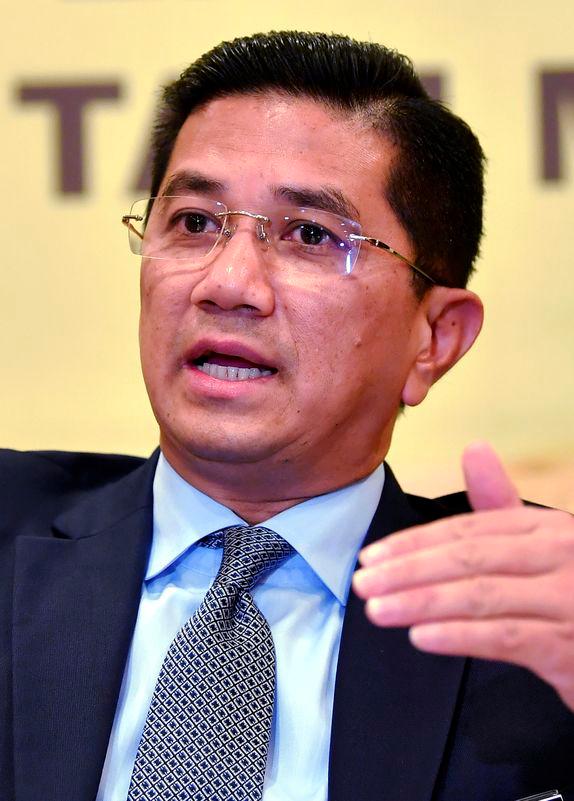PETALING JAYA: Political analysts are divided over Datuk Seri Azmin Ali’s bold claim that Perikatan Nasional (PN) could wrest Selangor from Pakatan Harapan (PH) in the next general election.
Azmin (pic) who is Bersatu secretary-general and Selangor PN chief, said the coalition could gain 10 additional seats, enough to form the next state government.
The statement, made during the Kembara Bersatu Selangor event last month, reignited debate over PN’s prospects in a state long considered a PH stronghold.
Backing Azmin’s claim, Senior Fellow at the Nusantara Academy of Strategic Research Prof Dr Azmi Hassan said the assertion is grounded in data from the August 2023 state election.
“There may be a reason why Azmin made the claim. If we look at the results of the last Selangor state election, PN needed fewer than 7,000 votes in several constituencies they lost to form the government. That confidence is based on real data,” he told theSun.
Azmi noted that several seats were lost by razor-thin margins and could flip with targeted campaigning and voter turnout.
He also pointed out that Pas, a key PN ally, has urged its supporters, particularly Kelantanese residing in Selangor, to switch their voting constituencies to the state, potentially shifting the electoral balance.
He said PN has a better shot at capturing Selangor than taking over Pahang, another state currently under the Madani government.
Among the marginal seats won with less than a 7,000-vote majority are: Sungai Air Tawar, Lembah Jaya, Taman Templer, Kota Damansara, Sekinchan, Sungai Tua, Pelabuhan Klang, Sungai Pelek, Dusun Tua, Batu Tiga, Kuala Kubu Baharu, Meru and Tanjong Sepat.
However, Universiti Malaya political analyst Dr Mohammad Tawfik Yaakub offered a contrasting view, arguing that PN had already peaked.
“The major wave during the last state elections saw PN penetrate nearly all Malay-majority areas in Selangor. What remains now are the urban and non-Malay dominant constituencies, which are still under PH control.”
Despite unresolved political issues under the unity government, Mohammad Tawfik observed that non-Malay voters – especially the Chinese – continue to back PH, with DAP remaining their party of choice.
He added that PN should broaden its appeal among non-Malay voters, particularly in urban areas.
“They must also focus on retaining the two marginal seats they narrowly won – Gombak Setia (58-vote majority) and Taman Medan (30-vote majority).”
Similarly, Universiti Utara Malaysia deputy vice-chancellor (Academic and International Affairs) Prof Dr Mohd Azizuddin Mohd Sani said Azmin’s remarks appeared to be more about boosting PN morale than presenting a realistic scenario.
“PN appears sluggish and fragmented. There are signs of internal friction, especially between Pas and Bersatu, as well as unresolved leadership rivalries.
“In my view, PN currently lacks a compelling agenda for voters. Relying solely on sentiment won’t be enough.”
Echoing that view, University of Tasmania Asia Studies professor James Chin said PN’s weak support among non-Malays remains a key obstacle in Selangor.
“It is highly likely that PH will retain Selangor due to DAP’s strong grip on Chinese support. As long as that remains, it’s difficult to see PN making real inroads.”
PH won 34 of the 56 seats in Selangor during the 2023 state election. The coalition has governed the state since 2008.









